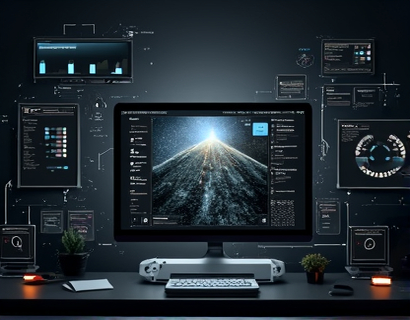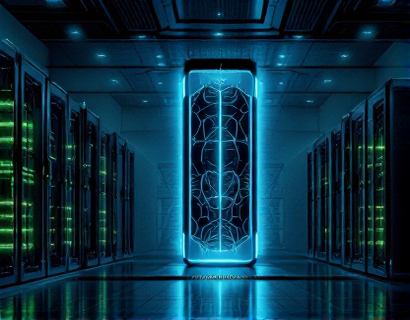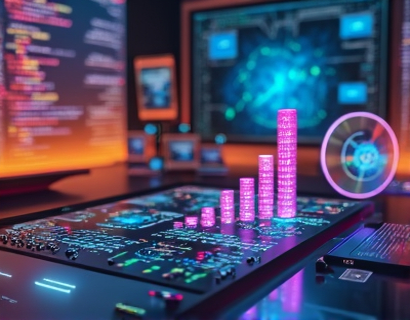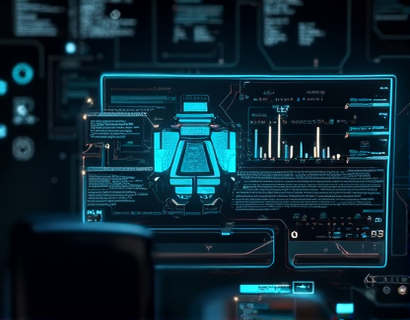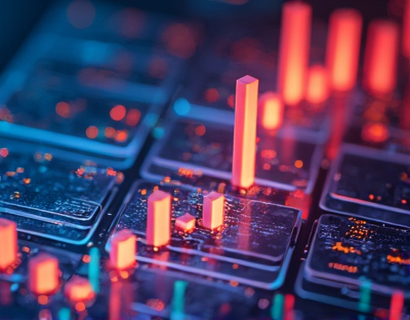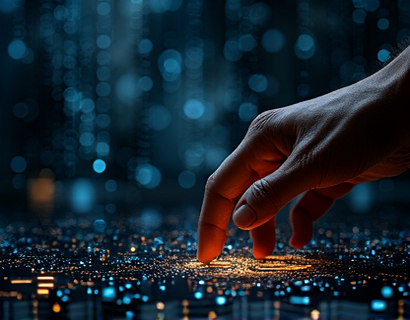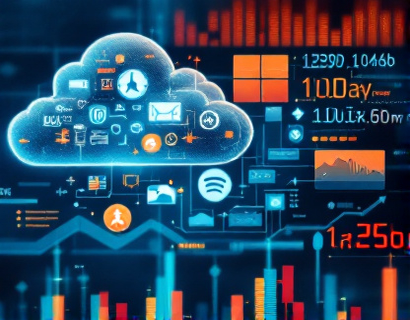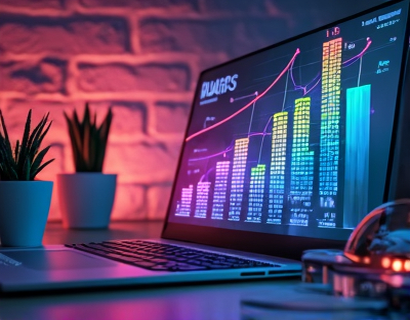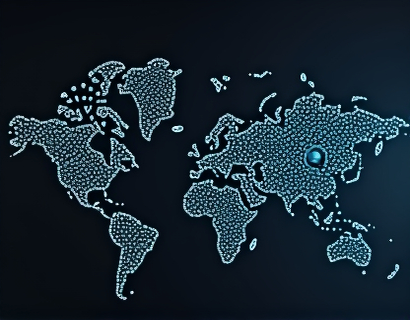Decentralized AI and Crypto: Revolutionizing Ucosystem Applications for Enhanced Digital Experiences
The intersection of decentralized technologies and artificial intelligence is giving rise to a new era of digital applications, fundamentally transforming how users interact with online services. This fusion, often referred to as Ucosystem applications, leverages the strengths of both AI and cryptocurrency to create more secure, transparent, and user-centric digital experiences. As we delve into this transformative space, it's essential to understand the key components and the profound impact these technologies are having on the digital landscape.
Understanding Decentralized AI
Decentralized AI refers to artificial intelligence systems that operate on a distributed network, typically a blockchain, rather than on centralized servers. This approach eliminates single points of failure and enhances data privacy and security. By distributing AI computations across a network of nodes, decentralized AI ensures that no single entity has control over the entire system, making it more resilient to attacks and censorship.
The decentralized nature of these AI systems also promotes transparency and accountability. Every transaction and computation is recorded on the blockchain, providing an immutable and verifiable trail. This transparency is crucial for building trust among users, especially in applications where data integrity and user privacy are paramount.
Cryptocurrency and Decentralized Applications
Cryptocurrency plays a pivotal role in the ecosystem of decentralized applications. It serves as a medium of exchange, enabling seamless transactions without the need for intermediaries such as banks or payment processors. Smart contracts, self-executing contracts with the terms directly written into code, further enhance the functionality of decentralized applications by automating and enforcing agreements.
Blockchain technology, the backbone of cryptocurrency, provides a secure and decentralized ledger for recording transactions. This technology ensures that all participants in the network have access to the same data, reducing the risk of fraud and errors. The use of cryptographic algorithms ensures that data is tamper-proof, adding an extra layer of security to decentralized applications.
Enhanced User Engagement through Decentralized AI
One of the most significant advantages of decentralized AI applications is the enhanced user engagement they offer. Traditional AI-driven services often rely on centralized data repositories, which can lead to privacy concerns and limited user control over personal data. Decentralized AI applications, on the other hand, empower users by giving them ownership and control over their data.
Users can choose to share their data selectively and receive rewards in cryptocurrency for doing so. This incentivizes user participation and creates a more engaged and active community. For instance, in decentralized social media platforms, users can earn tokens by creating and sharing content, engaging with others, and contributing to the network's growth.
Moreover, decentralized AI can personalize user experiences to a greater extent. By analyzing data from a distributed network, AI algorithms can provide more accurate and relevant recommendations, predictions, and insights. This level of personalization enhances user satisfaction and loyalty, leading to higher retention rates and more active usage of the application.
Security and Privacy in Decentralized AI
Security and privacy are critical concerns in the digital world, and decentralized AI applications address these issues head-on. The decentralized architecture reduces the risk of large-scale data breaches, as there is no central point of attack. Additionally, the use of cryptographic techniques ensures that sensitive data is encrypted and only accessible to authorized parties.
Privacy-preserving techniques such as zero-knowledge proofs and homomorphic encryption allow AI models to process data without revealing the underlying information. This means that users can benefit from AI-driven insights and services without compromising their privacy. For example, in healthcare applications, patient data can be analyzed for research purposes while keeping individual identities confidential.
Use Cases of Decentralized AI and Crypto
The potential applications of decentralized AI and cryptocurrency are vast and varied, spanning multiple industries. Here are some key use cases that highlight the transformative impact of these technologies:
- Decentralized Finance (DeFi): DeFi platforms leverage AI to provide innovative financial services such as lending, borrowing, and trading. These platforms operate on blockchain networks, offering transparency, low fees, and access to a global user base.
- Supply Chain Management: Decentralized AI can optimize supply chain operations by providing real-time tracking, predictive maintenance, and fraud detection. Smart contracts ensure that all parties adhere to agreed-upon terms, reducing delays and disputes.
- Healthcare: AI-powered diagnostic tools can analyze medical data from multiple sources to provide accurate and timely diagnoses. Patient data is stored securely on the blockchain, ensuring privacy and compliance with regulations.
- Content Creation and Distribution: Decentralized platforms enable creators to publish and monetize their content directly, without intermediaries. AI algorithms can curate and recommend content based on user preferences, enhancing the overall user experience.
- Internet of Things (IoT): Decentralized AI can manage and analyze data from IoT devices, enabling smart homes, cities, and industries to operate more efficiently. Blockchain ensures secure and reliable communication between devices.
These use cases demonstrate the versatility and potential of decentralized AI and cryptocurrency to revolutionize various sectors. By combining the power of AI with the security and transparency of blockchain, these applications offer solutions that are not only innovative but also highly practical.
Challenges and Future Prospects
Despite the numerous benefits, the adoption of decentralized AI and cryptocurrency faces several challenges. Scalability remains a significant issue, as blockchain networks often struggle to handle a high volume of transactions efficiently. However, ongoing research and development in areas such as sharding and layer 2 solutions are addressing these concerns.
Regulatory uncertainty is another challenge, as governments and regulatory bodies are still grappling with how to oversee decentralized technologies. Clear and supportive regulations can help foster innovation while protecting consumers. Education and awareness are also crucial, as many potential users are still unfamiliar with these technologies.
Looking ahead, the future of decentralized AI and cryptocurrency is promising. Advancements in AI algorithms and blockchain technology will continue to enhance the capabilities of Ucosystem applications. Increased adoption and integration with existing systems will further solidify their position in the digital landscape. As more developers and businesses recognize the potential of these technologies, we can expect to see a surge in innovative solutions that transform the way we interact with digital services.
In conclusion, the fusion of decentralized AI and cryptocurrency is paving the way for a new generation of applications that prioritize security, transparency, and user empowerment. These Ucosystem applications are not only enhancing digital experiences but also opening up new possibilities for growth and innovation. As we continue to explore and harness the potential of this transformative fusion, the future of the digital world looks brighter and more inclusive than ever.







